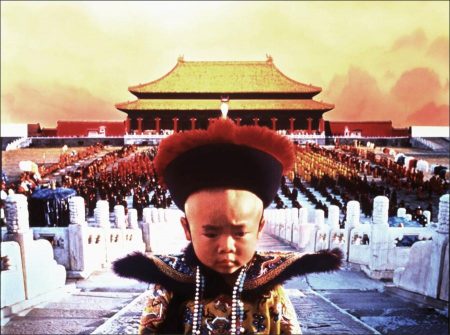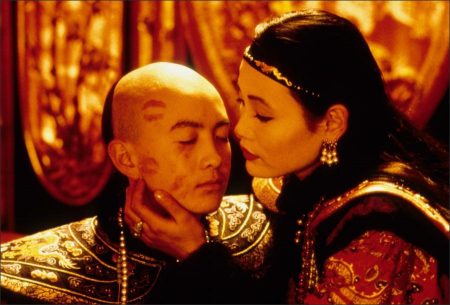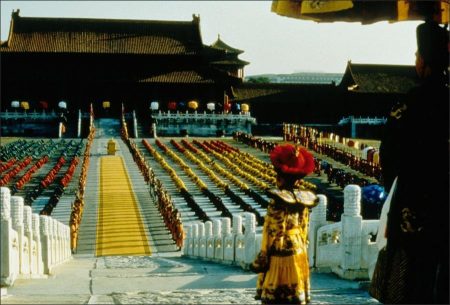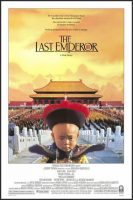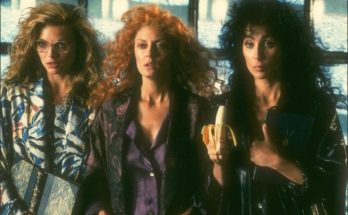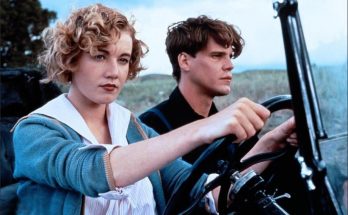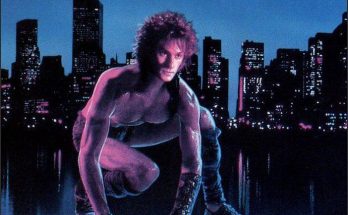The Last Emperor movie synopsis. This sweeping account of the life of Pu-Yi, the last emperor of China, follows the leader’s tumultuous reign. After being captured by the Red Army as a war criminal in 1950, Pu-Yi recalls his childhood from prison. He remembers his lavish youth in the Forbidden City, where he was afforded every luxury but unfortunately sheltered from the outside world and complex political situation surrounding him. As revolution sweeps through China, the world Pu-Yi knew is dramatically upended.
The Last Emperor (Italian: L’ultimo imperatore) is a 1987 British-Italian epic biographical film about the life of Puyi, the last Emperor of China, whose autobiography was the basis for the screenplay written by Mark Peploe and Bernardo Bertolucci. Independently produced by Jeremy Thomas, it was directed by Bertolucci and released in 1987 by Columbia Pictures. Puyi’s life is depicted from his ascent to the throne as a small boy to his imprisonment and political rehabilitation by the Communist Party of China.
The film stars John Lone as Puyi, with Joan Chen, Peter O’Toole, Ruocheng Ying, Victor Wong, Dennis Dun, Ryuichi Sakamoto, Maggie Han, Ric Young, Vivian Wu, and Chen Kaige. It was the first occidental feature film for which the producers were authorized by the People’s Republic of China to film in the Forbidden City in Beijing. It won nine Academy Awards, including Best Picture and Best Director.
About the Story
The film opens in 1950, five years after the capture of Puyi by the Red Army when the Soviet Union entered the Pacific War in 1945 and his having been kept in their custody. In the recently established People’s Republic of China, Puyi arrives as a political prisoner and war criminal at the Fushun Prison. Soon after his arrival, Puyi attempts suicide, but is quickly revived and told he must stand trial. Throughout the film there is a series of flashbacks.
42 years earlier, in 1908, Puyi is summoned to the Forbidden City by the dying Empress Dowager Cixi. After telling him that the previous emperor had died earlier that day, with her last words, Cixi tells Puyi that he will be the next emperor. After his coronation, Puyi, frightened by his new surroundings, repeatedly expresses his wish to go home, which is denied him. Despite having scores of palace eunuchs and maids to wait on him, his only real friend is his wet nurse, who accompanied him and his father to the palace on the Empress Dowager’s summons.
The next section of the film continues the series of chronological flashbacks showing Puyi’s early life: from his imperial upbringing in the Forbidden City with his younger brother, Pujie, during the Republican era, his tutelage under the kindly Scotsman Reginald Johnston, his marriage to Wanrong, and his increasing rebellion against traditional court practices, to his subsequent exile in Tientsin following the Beijing Coup, his Japanese-supported puppet reign of Manchukuo, and then his capture by the Red Army – all intermixed with flash-forwards portraying his prison life in the 1950s.
Under the “Communist re-education programme” for political prisoners, Puyi is coerced by his interrogators to formally renounce his forced collaboration with the Japanese invaders for war crimes during the Second Sino-Japanese War. Finally, after a heated discussion with the camp commandant and upon watching a film detailing the wartime atrocities committed by the Japanese, Puyi recants his previous stance and is considered rehabilitated by the government; he is subsequently set free in 1959.
The next section of the film shows a flash-forward to 1967 during the rise of Mao Zedong’s cult of personality and the beginning of the Cultural Revolution. By now, Puyi has become a simple gardener who lives a peasant proletarian existence. On his way home from work, he happens upon a Red Guard parade, complete with children playing pentatonic music on accordions en masse and dancers who dance the rejection of landlordism by the Communists. His prison camp commander, his only friend during his incarceration, is forced to wear a dunce cap and a sandwich board bearing punitive slogans, and is one of the political prisoners now punished as an anti-revolutionary in the parade.
The Last Emperor (1987)
Directed by: Bernardo Bertolucci
Starring: John Lone, Joan Chen, Peter O’Toole, Ruocheng Ying, Victor Wong, Dennis Dun, Ryuichi Sakamoto, Maggie Han, Vivian Wu, Jade Go, Fumihiko Ikeda
Screenplay by: Mark Peploe, Bernardo Bertolucci
Production Design by: Ferdinando Scarfiotti
Cinematography by: Vittorio Storaro
Film Editing by: Gabriella Cristiani
Costume Design by: James Acheson
Set Decoration by: Chunpu Wang
Art Direction by: Maria-Teresa Barbasso, Gianni Giovagnoni, Gianni Silvestri
Music by: David Byrne, Ryuichi Sakamoto, Cong Su
Distributed by: Columbia Pictures
Release Date: December 18, 1987
Visits: 81
